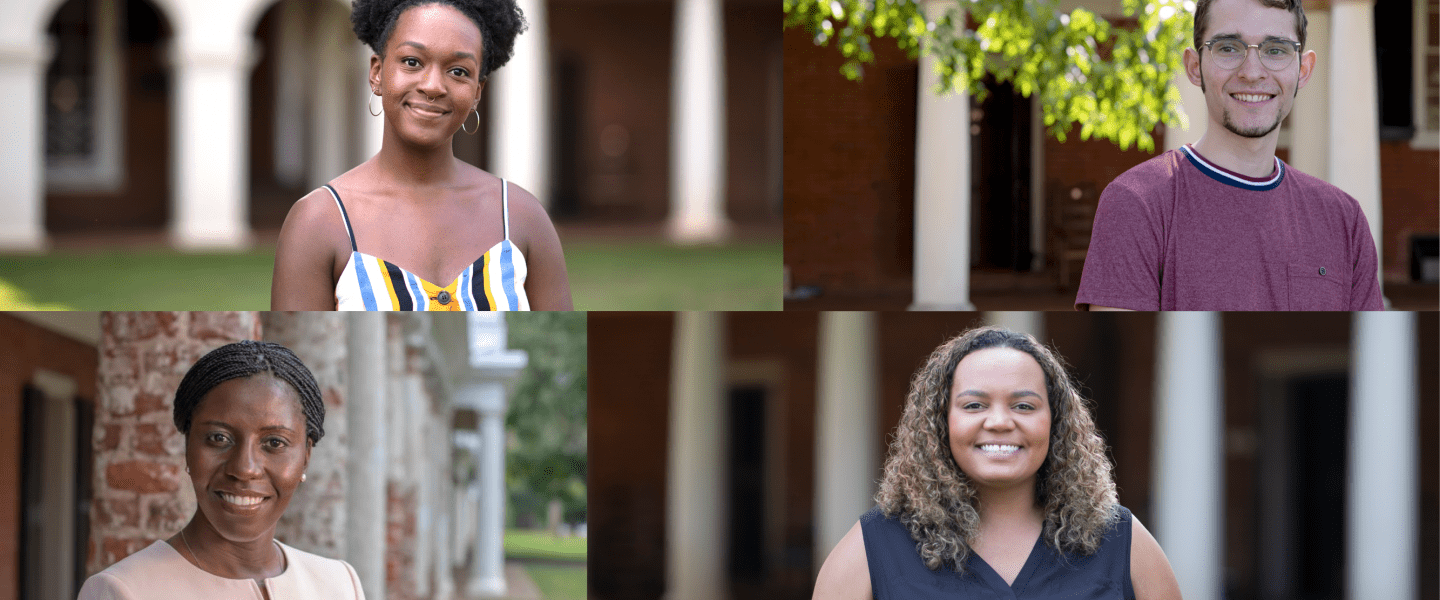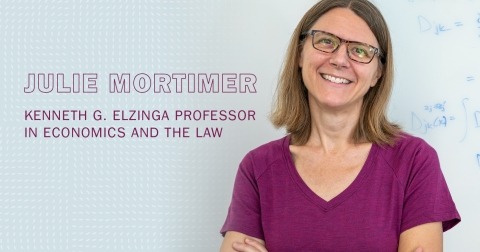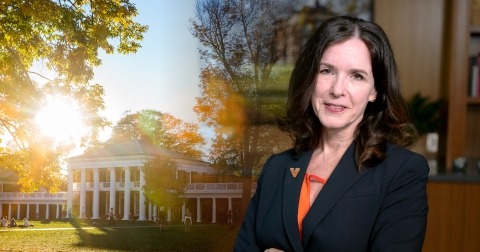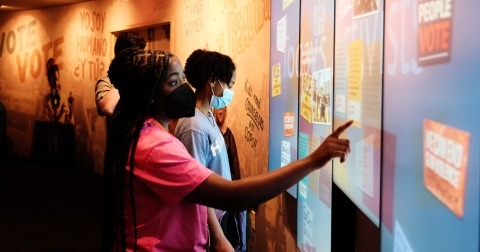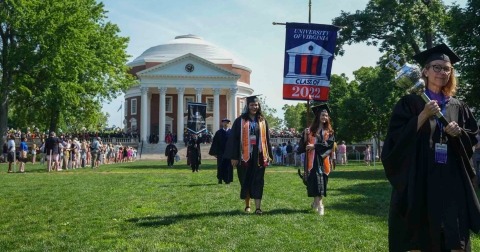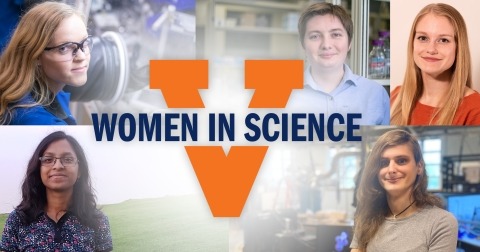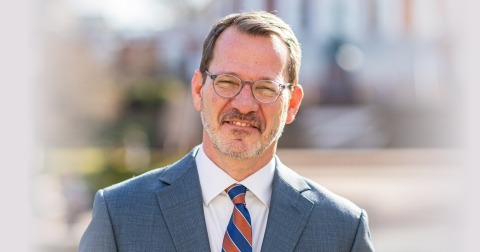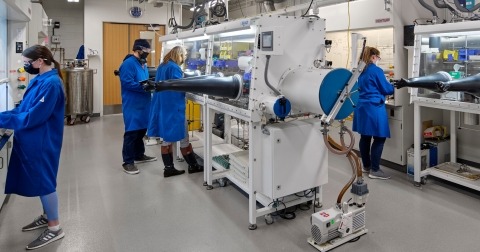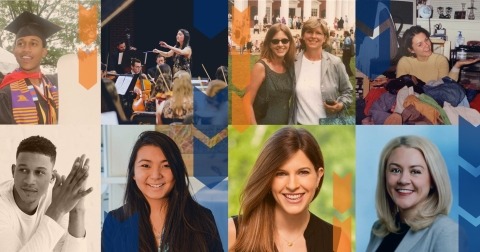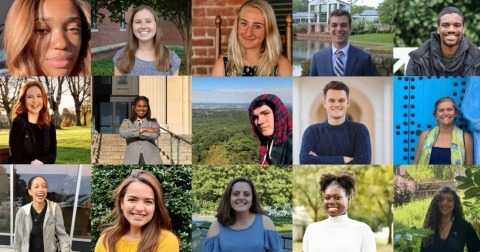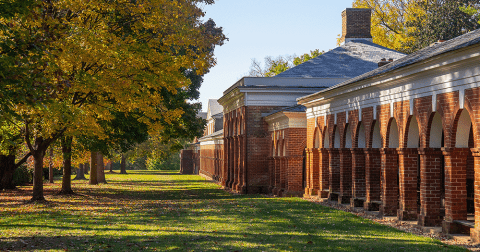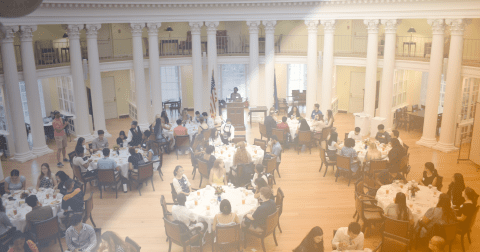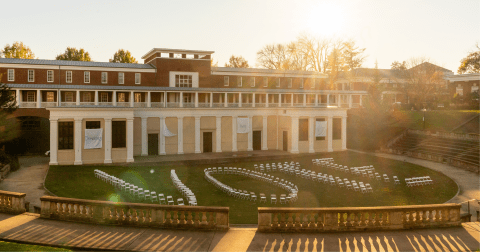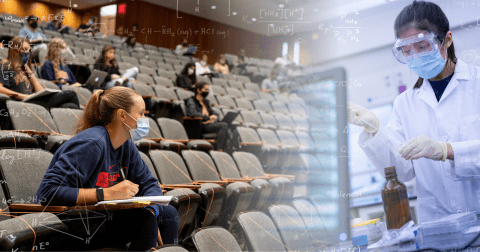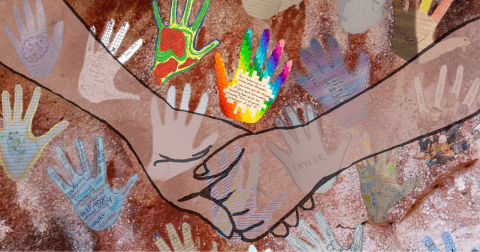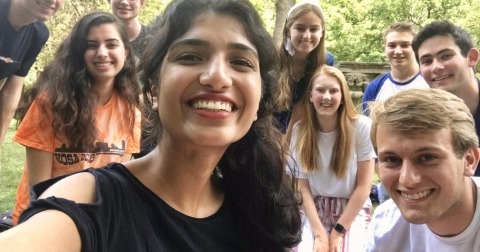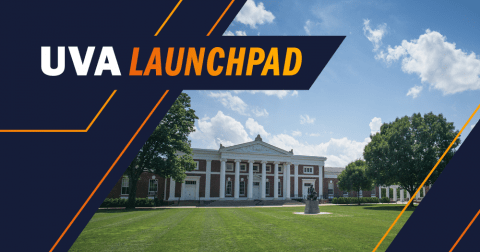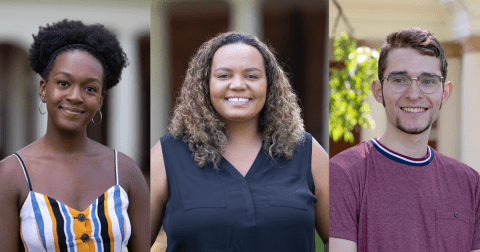The College and Graduate School of Arts & Sciences has introduced numerous programs over the last decade to advance racial equity and expand our commitments to diversity and inclusion. Scholarly work, student activity, and Arts & Sciences leadership have guided this journey with one common theme—the importance of addressing conditions rather than symptoms in a call for systemic action.
Dean Ian Baucom explained that both past and planned future work on race, justice and equality, have been crafted with the recognition that the University of Virginia was established on Thomas Jefferson’s vision that an educated citizenry is vital to the success of democracy. The next step, Baucom says, is to consider what that principle requires today, from all of us.
“Many things,” Baucom explains. “Key among them is our dedication to constantly opening and widening the doors of education to all. And parallel to that, our conviction that the words of the Declaration are true: that all men—all people—are created equal and that we have a special responsibility and vital role to play in bringing that truth ever more fully into existence. Because it is true. And because, like so many universities, we failed to live that truth at our beginning. And particularly so because of that specific call of the Declaration on us.
“I believe that responding to that Declaration truth is at the heart of our distinctive historical mission, renewed generation after generation as each of us strives to respond to the call of history and the call of our time. I think UVA has a special role to play in this, one that can and should make us stand out among universities nationwide.”
Ian Baucom, Buckner W. Clay Dean of Arts & Sciences
As part of UVA’s unique role, the Graduate School of Arts & Sciences began two initiatives more than a year ago — the Dean’s Doctoral Fellowships (DDF) program, which offers competitive funding packages in the recruitment of top-tier graduate students from underrepresented communities, including minority students and women in the sciences; and the Bridge to the Doctorate program, which is designed to assist the transition of under-represented students into doctoral programs and open the doors of opportunity for the next generation of top scholars, researchers and teachers. The University’s Strategic Investment Fund (SIF) provided the initial funding for these programs. Given their success and importance, the College and Graduate School is determined to sustain the funding for these fellowships as defining programs of excellence through philanthropic support.
“These programs represent a fundamental commitment to become—in our core mission—a Graduate School dedicated to expanding the diversity gateway of higher education, civic life, research, arts and the professions—not only at UVA, but for the worlds our graduate students will enter and change,” Baucom said. “One core way we can do that is to open the path to the future through programs like this, to become that gateway. These amazing young scholars are opening that gate—for us, and for the nation, and for our democracy. That’s what UVA is all about.”
Bringing New Energy
The competition for top graduate students continues to be fierce among elite graduate programs, and the DDF and Bridge fellowship programs allow the Graduate School to remain competitive for the most talented of these students being courted by premier programs across the country. The Graduate School is already making progress through these new programs, which it began implementing in 2019. The first class of 14 Dean’s Doctoral Fellows entered its second year of graduate study this fall.
The program includes Ph.D. students in the Departments of Chemistry, Economics, Environmental Sciences, History, Psychology, Sociology, as well as Religious Studies, where Michelle Bostic is focusing her graduate studies on religious ethics in relation to issues of housing, poverty and race. Bostic completed a master of divinity from Princeton Theological Seminary and was working at a New Jersey homeless shelter as a case manager for people with substance abuse issues before deciding to pursue a Ph.D. at UVA with support from a Dean’s Doctoral Fellowship.
As part of her introduction to the Ph.D. program, Bostic credited Keisha John, the Arts & Sciences’ Associate Dean for Diversity, Equity and Inclusion, for organizing workshops on how to navigate the unfamiliar world of research grant applications and networking for research collaborators, as well as informal social gatherings to help the different fellows connect.
“Especially coming into a program at the Ph.D. level as a first-generation college graduate, it can be a challenge learning how to navigate these worlds,” Bostic said. “At the same time, my department has been great about receiving feedback and encouraging me to voice my needs more. It’s not merely that you bring a different face into the room. My experiences have shaped my research. It’s why I’m interested in the ethics around housing, race and poverty, and the ways that I approached that topic are going to be very different than the way that someone else who hasn't worked in those areas would.”
Edward Barnaby, Arts & Sciences’ Assoc. Dean for Graduate Academic Programs, said that increasing fellowship support for talented graduate students also significantly elevates the work of the faculty members whose research they assist and the undergraduate students whom they teach and advise.
“In the ecosystem of the university, doctoral students bring a distinct energy and freshness to research and teaching,” Barnaby said. “And the financial support that we’re now able to provide to these graduate students enables them to achieve a more optimal balance between research and teaching that will enable them to complete distinguished dissertations and launch successful careers.”
In addition, the financial support helped the first cohort of Dean’s Doctoral Fellows choose UVA over other leading universities—from Ivy League schools to universities around the world with similarly premier programs in their fields of interest. Beyond the funding, graduate students said they came in large part based on the commitment to them that the Dean’s Doctoral Fellowships represents.
Fueling New Dreams
David Crowe, a Bridge to the Doctorate and Dean’s Doctoral Fellow in the Ph.D. program of the Department of Environmental Sciences, earned his B.S. in computer science at Texas State University and interned at the National Renewable Energy Laboratory and Lawrence Berkeley National Laboratory before coming to Grounds last fall.
“My background in computer science could have afforded a nice, cushy job in the tech industry, but I felt that wouldn’t make my heart sing,” said Crowe, who is Colombian American. “The doctoral fellowship allowed me to connect with like-minded students here at UVA and really sort out any financial concerns, which has empowered me to focus purely on my academics. It takes a huge weight off my shoulders. Because of the fellowship, I can wake up at a reasonable time and just focus on my research for the next six to 10 hours. For me, that’s the dream.”
This past year, Crowe assisted Stephan De Wekker, professor of environmental sciences, on a research project using drones to measure wind-speed data as an alternative to the traditional use of tethered weather balloons. As part of the project, Crowe helped two undergraduate research assistants, Raghava Pamula and Sophia Chen, wrangle with data and refine the machine learning modules used in the work. They are submitting their findings for potential publication in a peer-reviewed academic journal this fall.
Dean’s Doctoral Fellow Nia Baker, a second-year Ph.D. student in the Department of Sociology, said continued progress is required to keep opening doors of opportunity for other Black graduate students and minoritized racial groups. Initiatives such as the Dean’s Doctoral Fellowship program help to address the structural inequalities and cultural inadequacies that exist, Baker said.
“When I first got here, [before the COVID-19 pandemic moved the spring semester online], it was really great connecting with other students from similar backgrounds in other departments and not feeling so alone,” said Baker, who researches gender and sexuality issues and is interested in studying phenomena of sexual identity formation affected by race and racism. “It can be daunting coming into a program for the first time and already having a case of ‘impostor syndrome’ about being a doctoral student. That can be amplified when you’re the only person who looks like you or who is researching the thing you’re interested in.”
Although it remains too early to make any assessments about the long-term impact of these new programs, Assoc. Dean Keisha John said the Graduate School is equally committed to improving the representation of faculty of color at UVA.
“The demographics of the country are changing. We need, and students continue to ask for, more representation in our faculty. This is not unique to UVA,” she said. “To successfully respond, it is essential that we are guided by equity as we further open doors for the entrance of diverse students into the academy. Our investment in this work is critical, especially in this current moment.”

